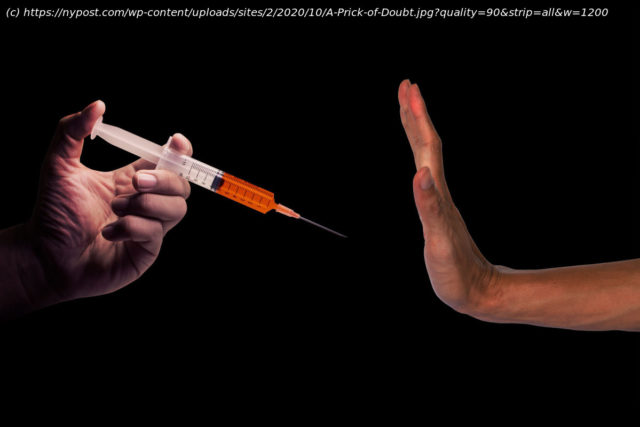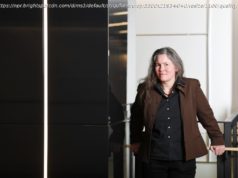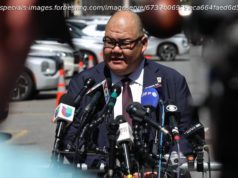Tara Granger, 36, has worked as a nurse for two decades in Suffolk County, NY, and she and her two children have been vaccinated every …
Tara Granger,36, has worked as a nurse for two decades in Suffolk County, NY, and she and her two children have been vaccinated every year. “Drugs are my life,” she says. “It’s what I learned in school.” But she’s been questioning the promised upcoming vaccine for COVID-19, in large part because of what she’s witnessed firsthand about the financial incentives for vaccines. “It scares me that I got so many free lunches and free dinners because I pushed the flu vaccine,” Granger says. “What am I going to get when I push a COVID vaccine?” Granger got sick from the coronavirus earlier this summer and said she did “the opposite of what people said to do. I took my supplements and vitamins, and didn’t go to the hospital to be put on a ventilator and die. I was smart enough to say, ‘My immune system can fight this, I just have to find the right way to do it.’ ” Her job will require her to recommend the COVID vaccine when it’s available, but Granger said she won’t personally be getting it. “The vaccine isn’t something we need, even if it is safe,” she says. “People want an easy solution and they think this is it. But it isn’t.” She’s not the only one with misgivings. A Pew Research poll from late September showed that about half of US adults (51 percent) wouldn’t get a COVID-19 vaccine if it was available today — a big drop from the 72 percent who said they’d get one back in May. Complicating things even more: This past week, two major drug manufacturers halted their vaccine trials because of safety concerns. It’s made matters all the more confusing for Rob Holmes,50, of Marina del Rey, Calif., who said he gets an annual flu shot despite his wife’s reluctance. “I’m starting to think I’m the crazy one,” he tells The Post. For the first time, he hasn’t gotten a flu shot, and he said he’s “still on the fence” about whether he’ll get a COVID vaccine when it becomes available. Claudia Torres, a 28-year-old stay-at-home mom and blogger from Miami, feels the same. She said all of her kids are up-to-date on recommended vaccines. “I’m not an anti-vaxxer or think COVID-19 is a hoax,” she says. “But I just don’t want the COVID-19 vaccine.” Even the rich and powerful are expressing doubt. Elon Musk said in a podcast interview in late September that he won’t be getting a vaccine because he’s “not at risk for COVID, nor are my kids.” The anti-vax movement is nothing new — in 2019, the World Health Organization listed “vaccine hesitancy” as one of the top-ten threats to global health — but the growing distrust of a vaccine that, at this point, is only hypothetical is a rare cultural phenomenon. Scott Ratzan, a physician and medical misinformation expert at the City University of New York and Columbia University, says anti-COVID vaccine sentiment is the result of “a massive assault on trust in government, in science and in public-health authorities.” The misinformation has mostly been spread online, thanks to social media and the controversial documentary “Plandemic,” in which discredited virologist Judy Mikovits claims a hypothetical COVID vaccine would “kill millions.” “Throw in QAnon and people’s increasing impatience with the effect of the disease on their lives and livelihoods, and you have fertile ground to sow anti-science propaganda,” says Ratzan. “It’s been like manna from heaven for hardcore anti-vaxxers.” The usual anti-vax tropes — religious objections, concerns that vaccines cause autism — aren’t behind most COVID-19 vaccine concerns. According to an August survey from STAT and the Harris Poll,78 percent of Americans are worried that a COVID-19 vaccine is being influenced more by politics than science.
Start
United States
USA — Science Scientists worry as more Americans say they’ll refuse COVID-19 vaccine






